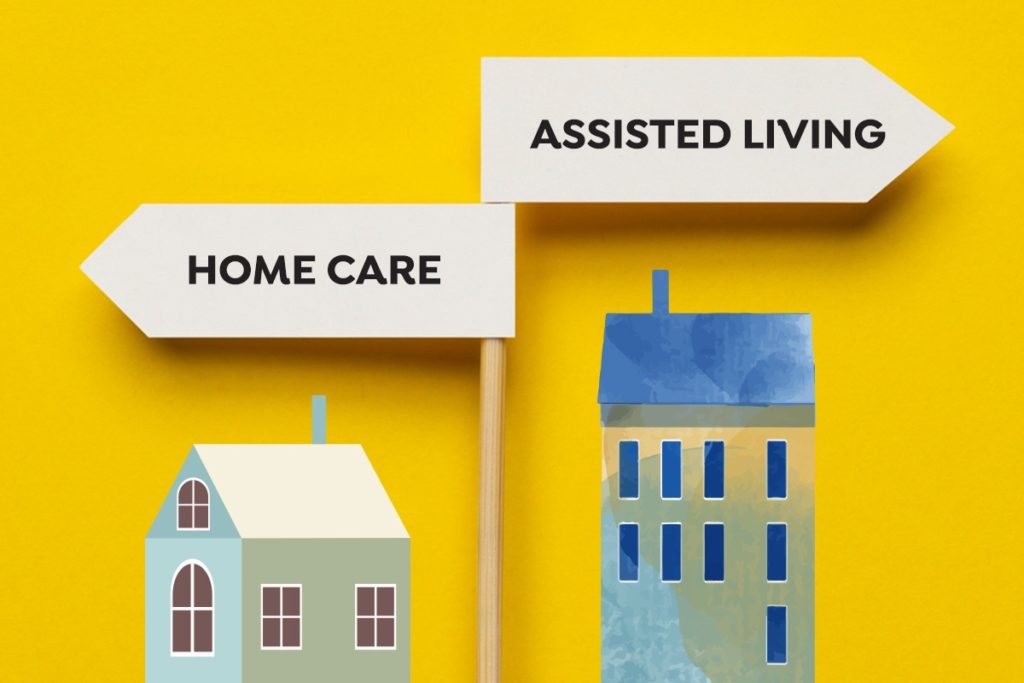
Some of the links on this page may link to our affiliates. Learn more about our ad policies.
How To Move Your Elderly Parents – And Keep Everyone Happy
Updated on: December 2022

As we grow older, particularly as adults, many of us will inevitably reach the point where we begin worrying about the health of our parents. We want them to stay healthy and live independently as long as possible, but there will come a time where they may need help with some common daily activities. Parents often feel they are burdening their kids when it comes to their health care needs. A 2009 study revealed dialogue from seniors aged 69 and up that focused on aging seniors’ feelings on their kids being involved in their health care as they grow older.
“My one daughter has all these responsibilities with her job and she has her children. I don’t feel that they should have to take care of us,” one elderly person said.
Another older woman mentioned that she hid her true feelings from her daughter’s family to avoid being a burden on them.
“Sometimes I have to tell her I’m ok but I’m not. ‘Cause she wants me to move out of my house and come live with her and her husband,” she said.
These feelings, while natural, don’t need to be hidden inside your loved ones for long. An open conversation about the future is an important step in alleviating those feelings. So when is the right time to start having that conversation?
Find What You Need
When to Have the Conversation About Moving
The conversation of moving your loved ones is difficult on its own, but deciding when it’s time to have the conversation is just as tough. It may not be safe for your parents to live in their home anymore, because their inability to clean and maintain their current residence can cause potential health problems (mold, pests) and dangerous living conditions (faulty wiring, leaky pipes). There’s also the issue of whether or not your loved ones are able to physically and mentally live on their own anymore. The concept of ADLs (activities of daily living) helps give you a good idea of if you should be looking to move your loved ones and how intensive their future place needs to be in terms of their health care. The ADL concept was developed by Dr. Sidney Katz, who determined that every human needs to complete six daily functions to live independently. They are:
- Bathing
- Eating
- Getting dressed
- Going to the bathroom
- Controlling when you can go to the bathroom
- Getting out of bed
These activities are scored on a scale of zero or one under Katz’s method, zero if you can’t complete the task and one if you can on a regular basis. The higher the number, the more independently you’re able to live. Conversely, the lower the number, the more dire it probably is that your loved one will need to move to a location where a more watchful eye is present. Outside of ADLs, there are some general warning signs that your loved ones might not be able to completely live on their own anymore. These can include:
- Isolation: As seniors grow older, they can isolate themselves from friends and family, and that can fuel unhealthy habits and maladies like addiction and increased mortality rates. Isolation is often caused by the loss of friends, family, and a spouse, and seniors who isolate often worry about becoming a burden to their loved ones. A change of scenery into a more inclusive environment could help.
- Poor hygiene: An unsavory stench coming from your loved one may indicate that he or she may not be taking care of themselves as much as they should. This may occur because they are physically unable to or they are worried about slipping in the shower. There are living facilities that offer bathing services that may be attractive to your loved ones.
- Messy living area: An untidy home or apartment can indicate your loved ones may not have the physical capacity to clean up after themselves anymore, which can bring on a host of diseases into the household that, if infected, can more severely impact seniors.
- Worsening health: Seniors become more susceptible to developing inhibiting conditions like dementia or heart issues as they age, which makes it difficult for them to live alone.
Our guide about knowing when it may be time for assisted living has more information about when it’s right time to make a decision about moving your elder loved ones. Once you decide it’s time to have the conversation of moving out, you and your loved ones have to decide what their next move is.
Where to Move?
An important step in the moving process is deciding exactly where your loved ones will live. How well they can still function on their own, which relates directly to the ADLs discussed before, will determine where your parents should reside as they age. Some potential living residences include:
Nursing homes:
They feature round-the-clock care for those who can’t complete many of life’s basic functions on their own anymore, with most of those who enter a certain home needing help with bathing, using the bathroom, and getting dressed. If your loved ones are getting to the point where they need close to 24-hour care at home, nursing homes are usually the next best option.
Retirement communities:
These communities are rather relaxed places to live. They often feature many of the same amenities as where your loved ones previously lived, such as grocery stores, exercise facilities, and entertainment outlets. Retirement communities are typically reserved for seniors who are relatively independent and complete many of the ADLs and IADLs necessary to live on their own. Many seniors may want to live here to decrease the stresses of daily living and completely providing for themselves.
Assisted living:
Less intensive than nursing homes, these facilities also feature round-the-clock care. However, the people who live there can still complete a handful of ADLs on their own. At these facilities, people who live here often have most if not all of their meals cooked for them, and seniors stick to a relatively strict schedule provided by the certain home.
Another option for your loved ones’ new home is your own place. There are a slew of reasons as to why you may want your mom, dad, or both living with you as they get older, including the ability to monitor their health in case something severe comes up and to make sure they’re around people they are familiar with as they age. This onus shouldn’t completely fall on your shoulders, though. If you can accommodate them, it’s reasonable to move your parents in with you, so long as they are comfortable with it as well. Your financial situation weighs into this decision, too. If your loved ones are willing and able to contribute to their caregiving and health needs while living with you, that is great, but not all elderly parents can help with the bills. It’s been reported that caregivers, employed or not, usually spend about $5,000 out-of-pocket per year on taking care of loved ones. You shouldn’t feel pressured to take out loans and increase credit card debt to have your loved ones living under your roof, so it’s vital to see if this fits into your budget before moving them in.
Suggestion for Handling the Move
The lead-up to and the day of moving can be a hectic process, especially if a loved one is feeling antsy or stubborn about changing residences. The aforementioned study that conducted interviews between the elderly and their adult children revealed that nearly half of them used the word “burden” to describe family involvement in their healthcare. There are steps you can take to ensure that moving—both the steps leading up to and the actual process—is as smooth as possible without making your loved ones feel like they are a burden to your life.
Communicate
This may be the most important part of the whole process: communication. You need to make sure that you and your loved ones are on the same page for the whole part of the moving process. Sure, there can be disagreements along the whole way, but the dialogue needs to remain consistent and open. “Prepare to have a direct, yet supportive conversation with your loved one(s),” Sean Kell, a senior living expert, wrote in a Huffington Post article. “The thought of this conversation may be intimidating, but it’s the only way to make a plan that reflects your loved one’s input and includes them in the process.” It’s crucial to start the moving conversation early, before the decision—particularly if it’s based on health reasons—out of your parents’ hands. This also allows plenty of time for feelings and desires to be expressed.
Agree On A Place
As detailed before, there is a wide range of places that you and your loved ones can decide on based on their need of care. Deciding on the type of residential facility, whether it’s a nursing home or your own home, needs to be the first step. Once you come to an agreement on that, the next step is doing thorough research on the facilities in the area that will best fit your loved ones’ interest. For example, there may be a specific retirement home that has a spa and exercise center that your mom prefers. Or maybe there’s an assisted living facility that caters more towards your loved ones’ cultural background. Whatever the case, it’s imperative to find a comfortable place for them to move and settle into. It’s also important to include a budget in the decision as to where your loved ones eventually reside. Your parents’ insurance may be accepted at certain assisted living facilities and won’t be at others. You should consider how much money you can spend from your own pocket to help your loved ones’ new lives, too.
Detail Every Step Of The Move
When it comes to the move itself, you should lay out a plan for the entire process. Starting with deciding on a place, mark down on a calendar when you’d like to make specific decisions. This goes for when you’ll start packing down to the day you plan on moving to a new place. Once you decide on where they’ll live next, you can start planning on how your loved ones’ new place will look, too.
Get The Whole Family Involved
It’s a good idea to try to get as much of your family involved in the move as possible to ensure your loved ones know that everyone cares about them. And there aren’t not enough family members available to get involved on the specific day of moving, hire a moving company to help. This way, the burden doesn’t fall entirely on family members.
Clean The Old Place
Once all the stuff is moved out of your parents place and into the new one, it’s important you clean and fix up the house or apartment you still have, especially if you own it. This can help give your loved ones a sense of closure by sending off their old residence to their kids in good condition. Whether you’re selling the residence, living in it, or plan on renting it out, you should give the house a good fixing—painting the walls, completely renovate rooms, etc.—to make sure it’s in top condition before hitting the market.
Settling Into The New Place
The moving is done. Your loved ones now live in a nursing home, a retirement community, or perhaps with you. It’s now time to get accustomed to the new place. Spend time with them, especially if it’s a residence that encourages family visiting, but also make sure you’re not overbearing them with how often you come, especially at the beginning. You probably won’t be seeing them four-to-five times a week for their entire stay in their new place, so give them time to get used to the new digs. Visiting them somewhat frequently at the beginning of their stay, however, gives them a familiar face in a place they’re completely unfamiliar with. Your presence may help them become more social with the new people surrounding them, too.

